Protecting Malawi with climate information and early warning systems
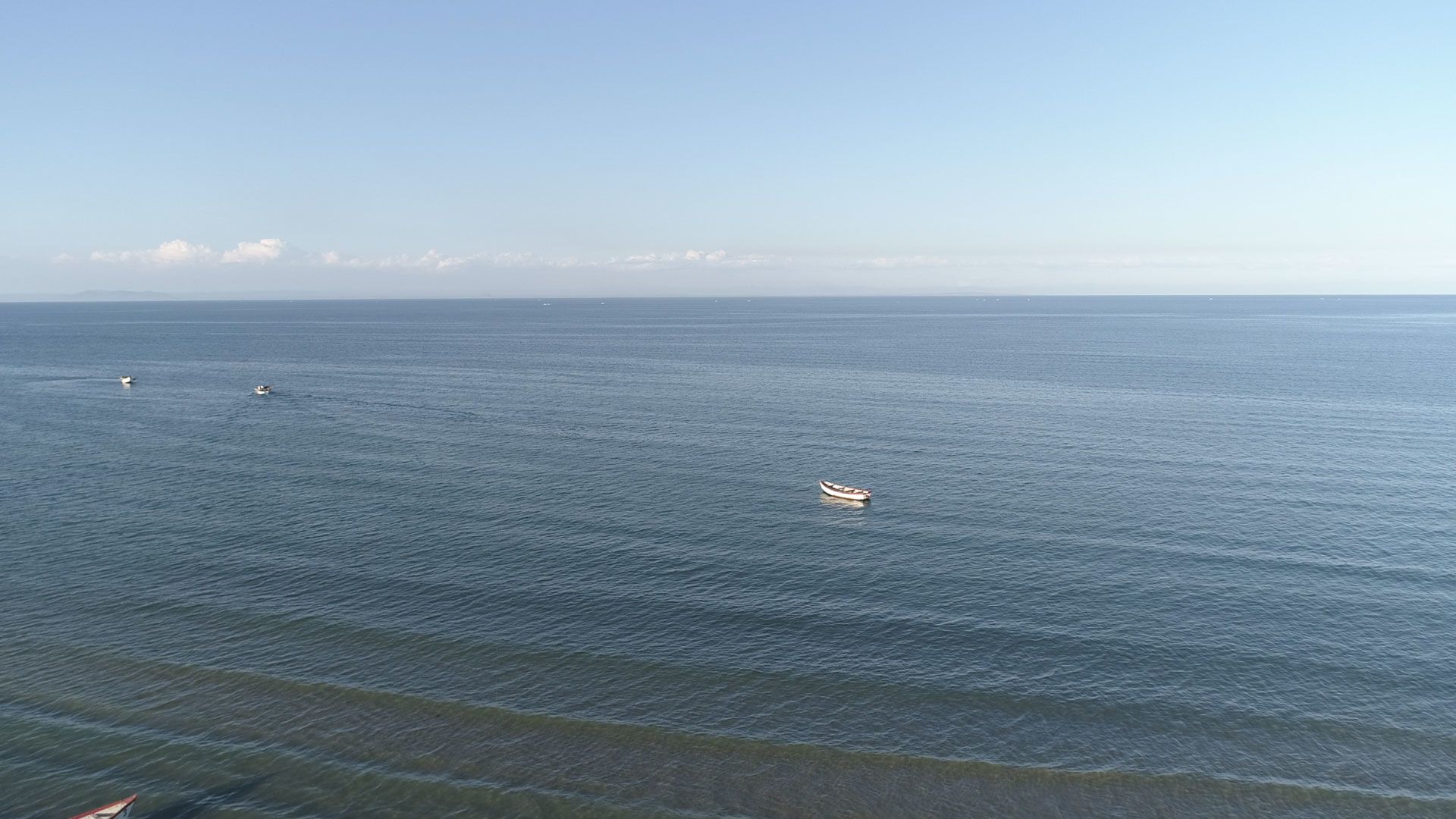
Setting the scene:
Climate challenges in Malawi
Malawi, one of the Least Developed Countries in Africa, is highly dependent on its agricultural sector. Around 85 percent of the country’s population live in rural areas, with the majority engaged in smallholder farming. More than half of these people are currently living in poverty.
The already dire living conditions of rural people are further exacerbated by increasing climate-induced disasters such as floods, droughts, and strong winds. A high dependency on subsistence farming makes smallholder farmers especially vulnerable to climate-related hazards. Floods particularly represent a major threat, and they have been increasing lately both in frequency and severity. Flooding in Malawi during 2015 affected over a million people. It displaced 336,000 and killed hundreds.
The impacts of the changing climate are not limited to flooding. Shifts in the country’s rainfall season, longer dry seasons, and reductions in the growing season are already occurring, threatening the country’s agricultural value chain and food supply.
My name is Boston Chuma. I am also a fisherman; I own fishing boats. The climate has changed so much especially when it comes to rainfall patterns. We also meet different challenges on the lake, like very strong winds. Natural hazards are many, especially because we go into the lake not knowing what kind of winds we will be facing. Strong winds find us on the lake, and a lot of fishermen in fishing canoes have lost their lives by drowning.
Boston Chuma Fisherman, Chairperson – Lifuwu Beach Village Committee
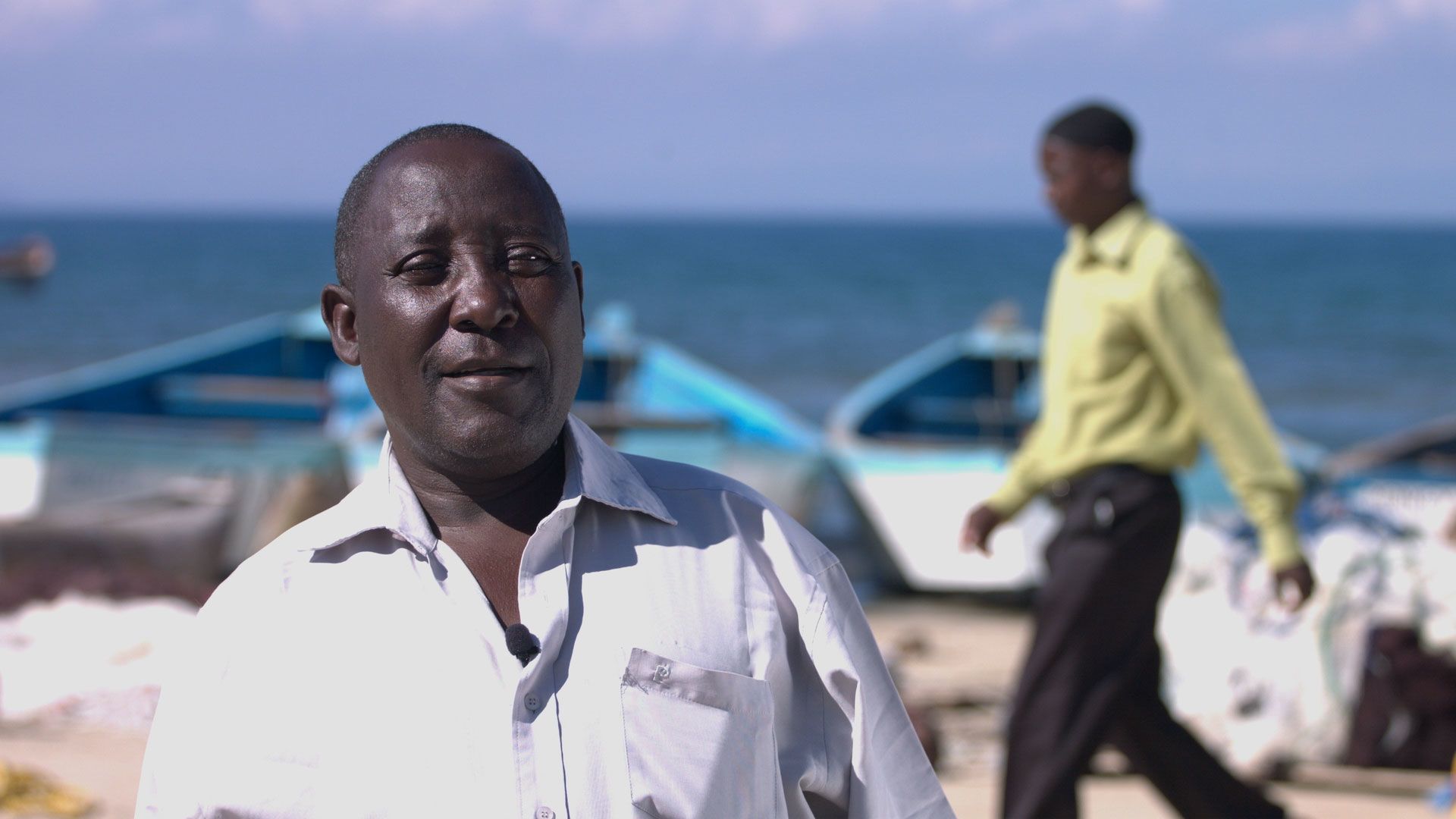
”My name is Boston Chuma. I am also a fisherman; I own fishing boats. The climate has changed so much especially when it comes to rainfall patterns. We also meet different challenges on the lake, like very strong winds. Natural hazards are many, especially because we go into the lake not knowing what kind of winds we will be facing. Strong winds find us on the lake, and a lot of fishermen in fishing canoes have lost their lives by drowning.”
The water found us around 7pm as we slept. Everyone was asleep. By the time we woke up we noticed that the whole village was covered in water. People started to cry – we were all just crying – together with our babies because of how fast the water came. Some of the men started to carry us, taking us to a dam that was built for irrigation farming. It is higher there, so it was safer than down here. Some men and boys got on roofs and others in tall trees, all just to escape from the water because there was nothing else we could do.
Ellen Zintchira, Flood Survivor
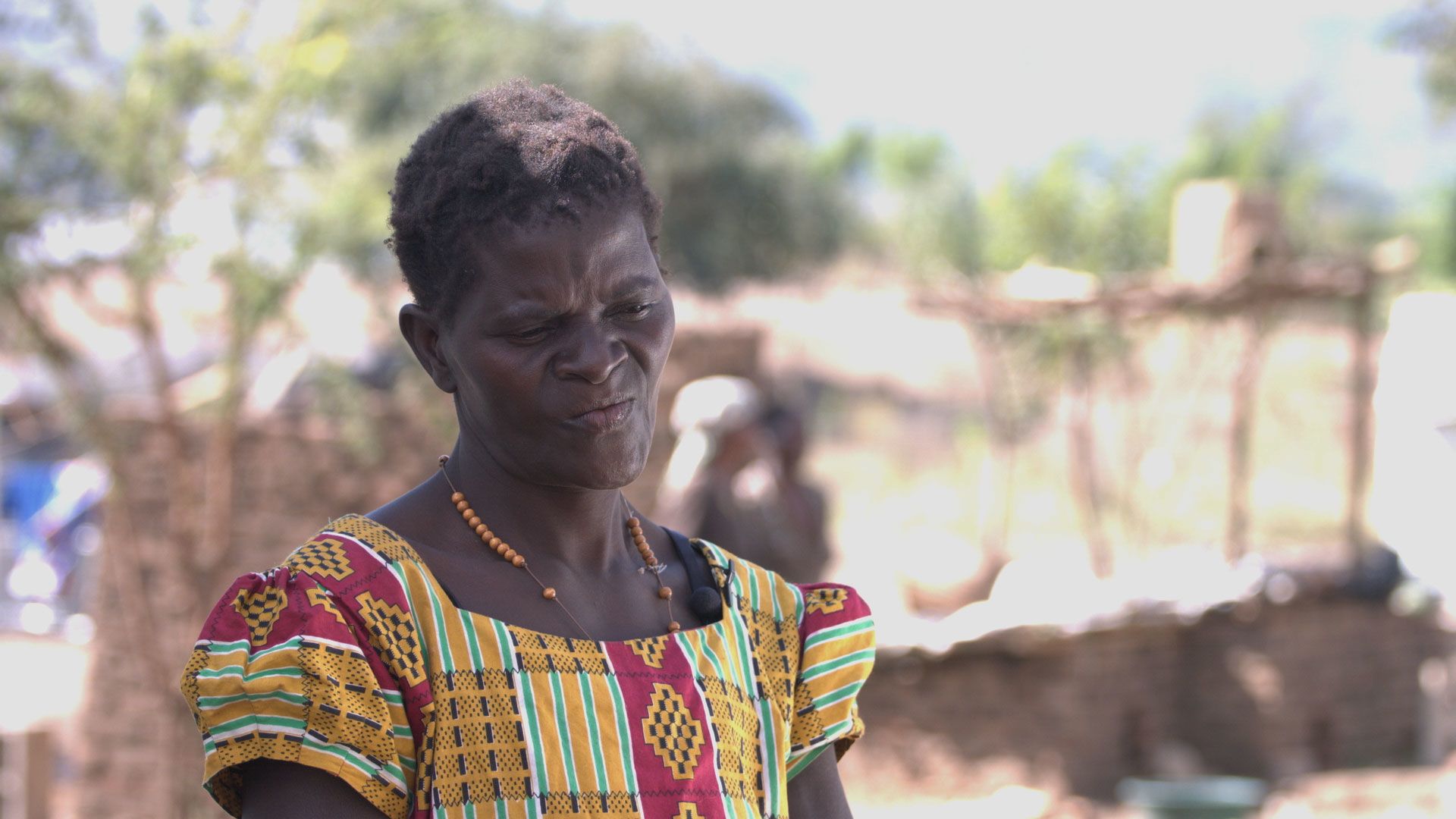
”The water found us around 7pm as we slept. Everyone was asleep. By the time we woke up we noticed that the whole village was covered in water. People started to cry – we were all just crying – together with our babies because of how fast the water came. Some of the men started to carry us, taking us to a dam that was built for irrigation farming. It is higher there, so it was safer than down here. Some men and boys got on roofs and others in tall trees, all just to escape from the water because there was nothing else we could do.”
In addition to smallholder farmers, the livelihoods of fishing people is also under threat. Lake Malawi, one of the largest lakes in the world, is a central geographical and economic feature of the country. It provides food and jobs for millions of people living along its shoreline. Due to climatic changes, fishing people are already forced to search for fish further offshore. This means they regularly encounter more severe weather, while taking longer to return to the safety of the shoreline.
It is expected the frequency of climate-induced disasters will continue to grow, increasingly threatening Malawi’s most vulnerable communities. Therefore, boosting the country’s climate resilience and increasing community preparedness for the devastating impacts of climate change has become increasingly a national priority.
“We’re seeing lately increased instances of floods and droughts. As a result, the loss of crops leads to problems with food security.”
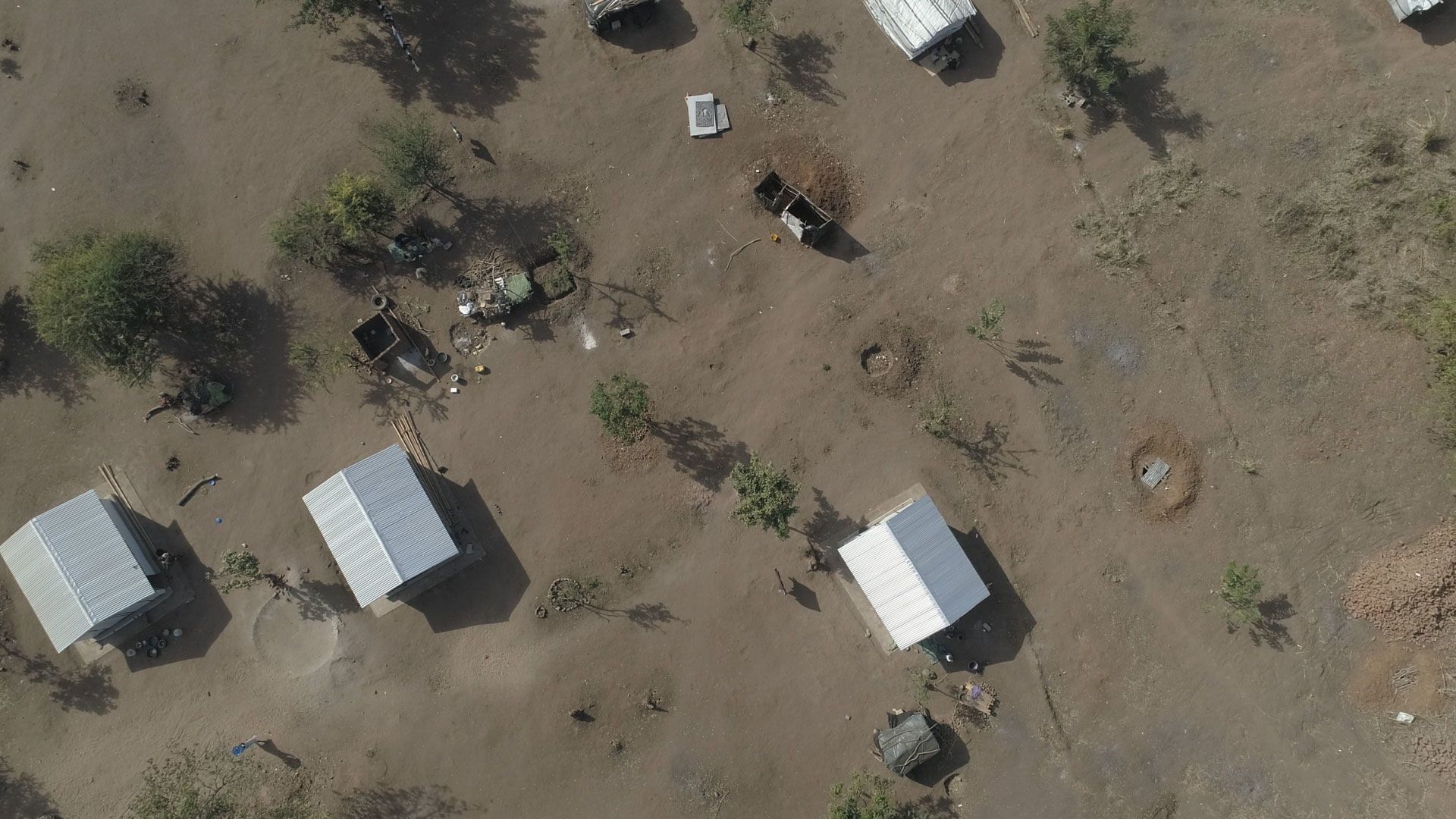
Early Warning Systems
and climate information
With their livelihoods increasingly under threat from climate disasters, Malawi’s rural people urgently need accurate and timely information to warn them about impending floods, droughts or heavy rains. Such information forms the basis of their ability to take preparatory action, which is critical to reducing the vulnerability of disaster-prone communities and livelihoods.
In order to contribute to Malawi’s climate resilience and preparedness capabilities, the Green Climate Fund (GCF), together with the UNDP, is implementing the project Scaling up the Use of Modernized Climate Information and Early Warning systems (M-CLIMES). The project will expand Malawi’s meteorological network, install automatic weather stations, hydrological monitoring stations, and lake-based weather buoys, as well as increase the capacity of local officials to identify risks and forecast impacts.
GCF Project FP002
GCF Project FP002
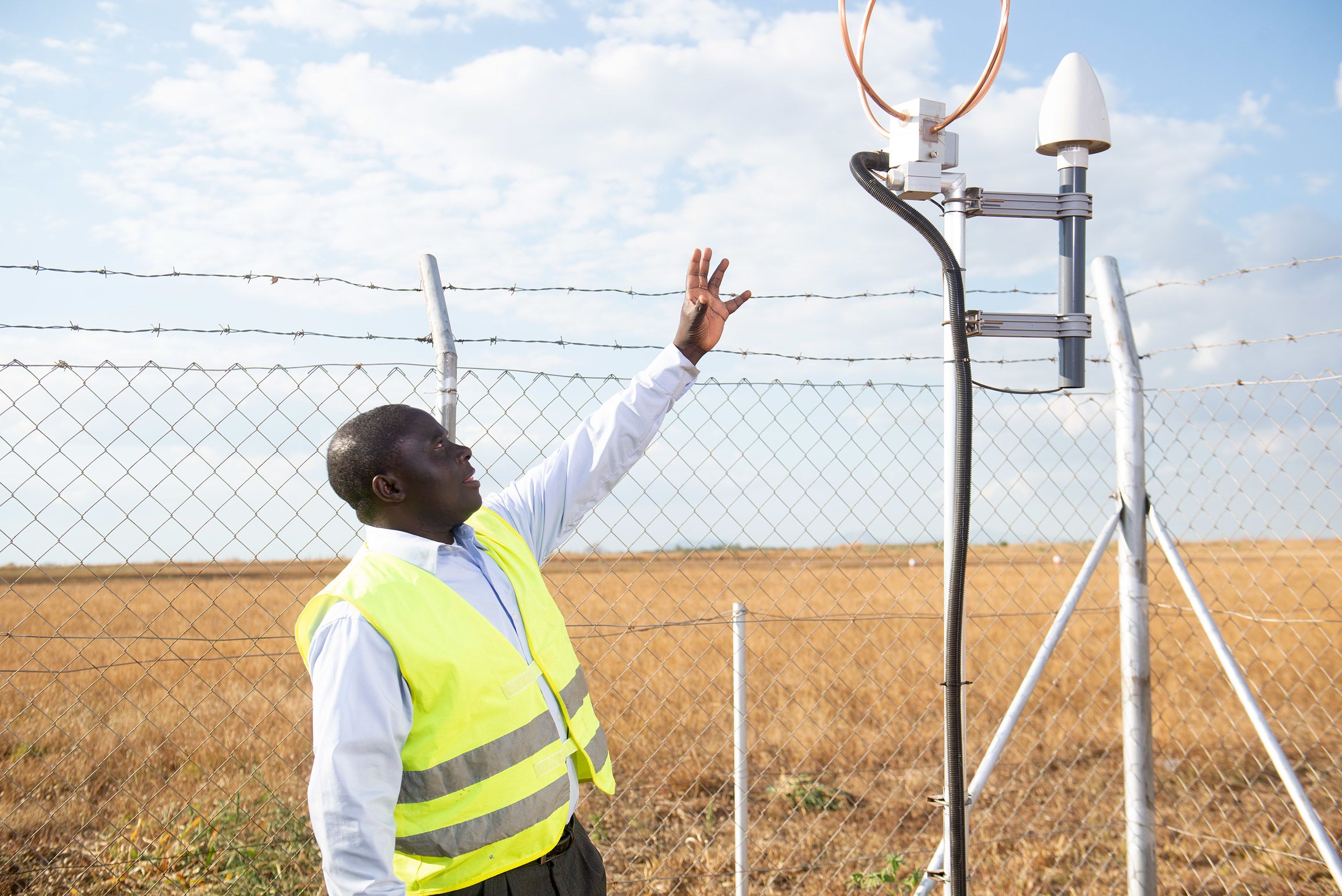
Implemented by Malawi’s Department of Disaster Management Affairs (DODMA), in partnership with the Department of Climate Change and Meteorological Services (DCCMS), the project will increase the warning time of impending climate-induced danger, allowing local communities sufficient time to prepare. In addition, a key component of the project involves training people in local hydromet networks to generate climate-related data. This helps them to forecast extreme weather and chart the broad effects of climate change.
Finally, generating accurate climate information is not enough. It must also be disseminated to the most remote parts of the country to ensure that fishing people and farmers are able to take timely and urgent action. The climate data obtained through the M-CLIMES project is spread through mobile phones, ICT, and radio channels - targeting vulnerable farming communities, as well as fishing communities around Lake Malawi. Working with the private sector, including telecoms and micro and small enterprises, the project will ensure people know what to do with this enhanced weather information.
The project is about modernising Early Warning Systems and modernising climate information. It’s about putting reliable, timely and accessible data into the hands of people who are the most vulnerable to extreme weather events. Whether these are weather advisories that are short term, or seasonal advisories to smallholder farmers about what are weather predictions and what is a suitable time to plant. At the same time the project is focused on the fishing community, which is a bedrock of Malawi. What we’re seeing with extreme weather events that people are putting themselves at risk simply because they don’t have access to what we take for granted such as weather advisories which we receive on smartphones.
Andrew Spezwoka Portfolio manager Resilience and sustainable growth UNDP Malawi
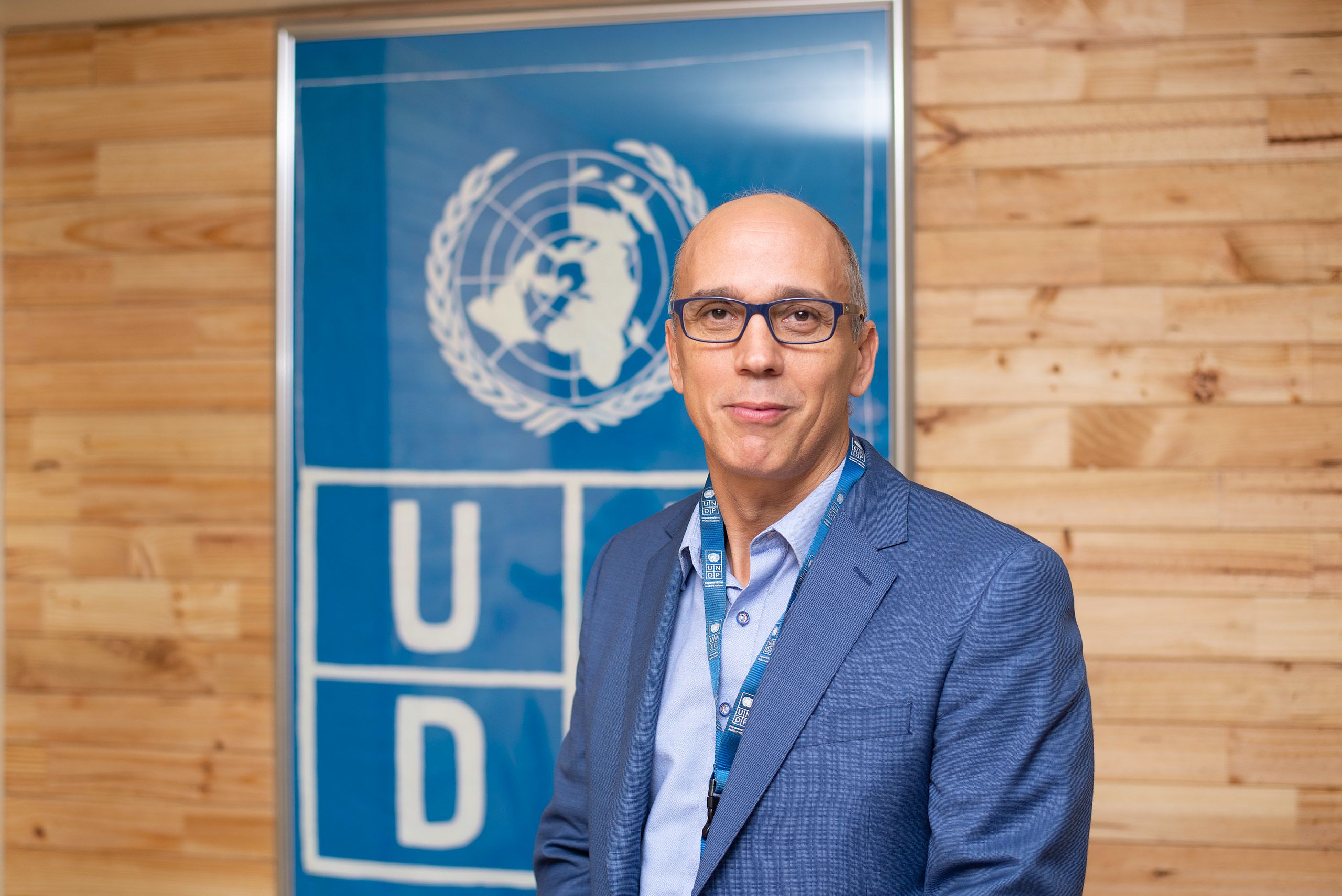
”The project is about modernising Early Warning Systems and modernising climate information. It’s about putting reliable, timely and accessible data into the hands of people who are the most vulnerable to extreme weather events. Whether these are weather advisories that are short term, or seasonal advisories to smallholder farmers about what are weather predictions and what is a suitable time to plant. At the same time the project is focused on the fishing community, which is a bedrock of Malawi. What we’re seeing with extreme weather events that people are putting themselves at risk simply because they don’t have access to what we take for granted such as weather advisories which we receive on smartphones.”
Flooding is one of the biggest hazards we have to deal with, and early warning information is then key in order to reduce the numbers of people that may be affected, but also reduce the loss of lives. If people can be informed about an impending flood before it strikes, they can take a number of actions that will reduce their vulnerability.
James Chiusiwa Director of Risk Reduction
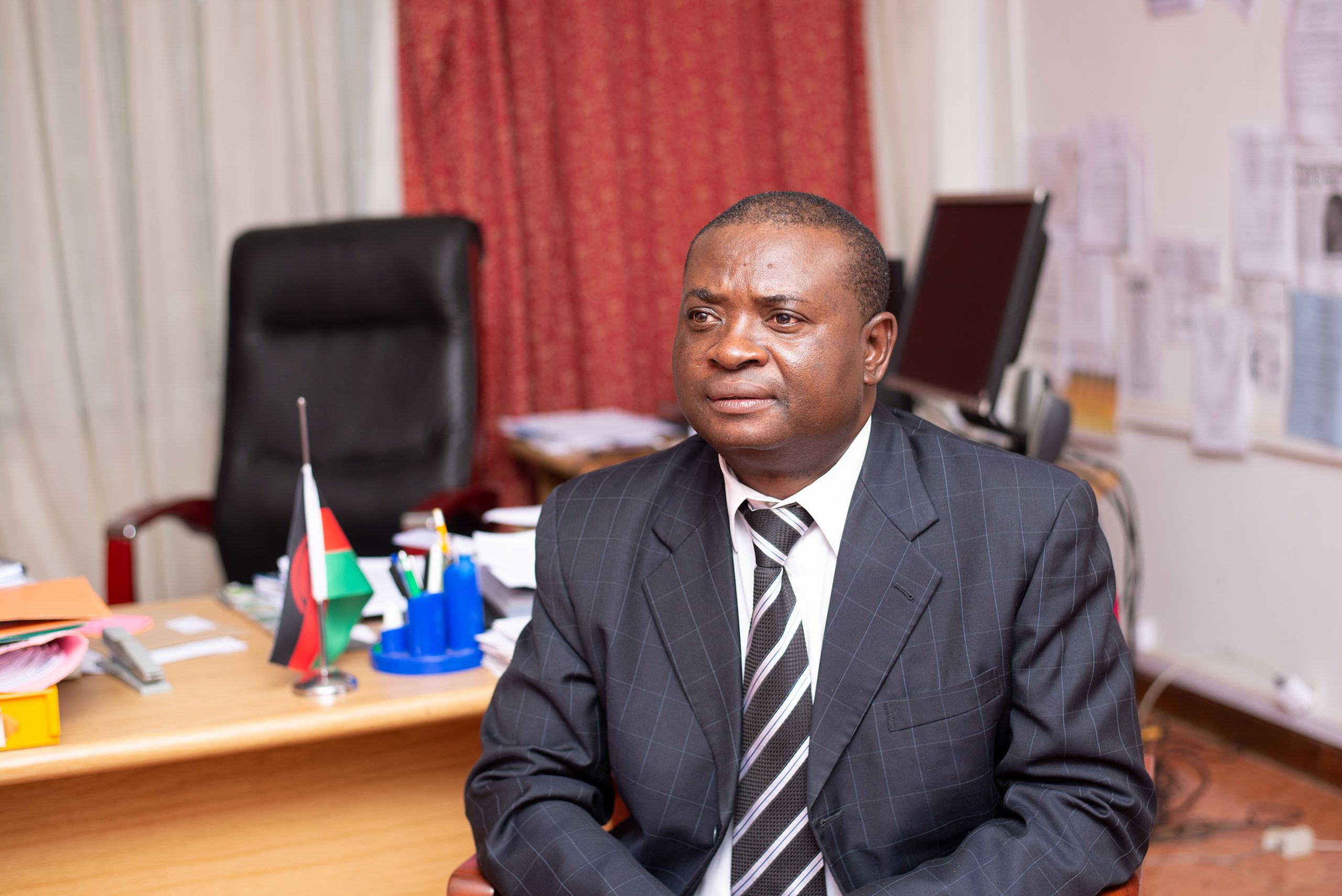
”Flooding is one of the biggest hazards we have to deal with, and early warning information is then key in order to reduce the numbers of people that may be affected, but also reduce the loss of lives. If people can be informed about an impending flood before it strikes, they can take a number of actions that will reduce their vulnerability.”
“The next steps will still maybe have to work on almost the same issues, mainly the communication and dissemination of information, as well as the capacity to understand and interpret the information, especially for the rural masses, the farmers, the fishers.”
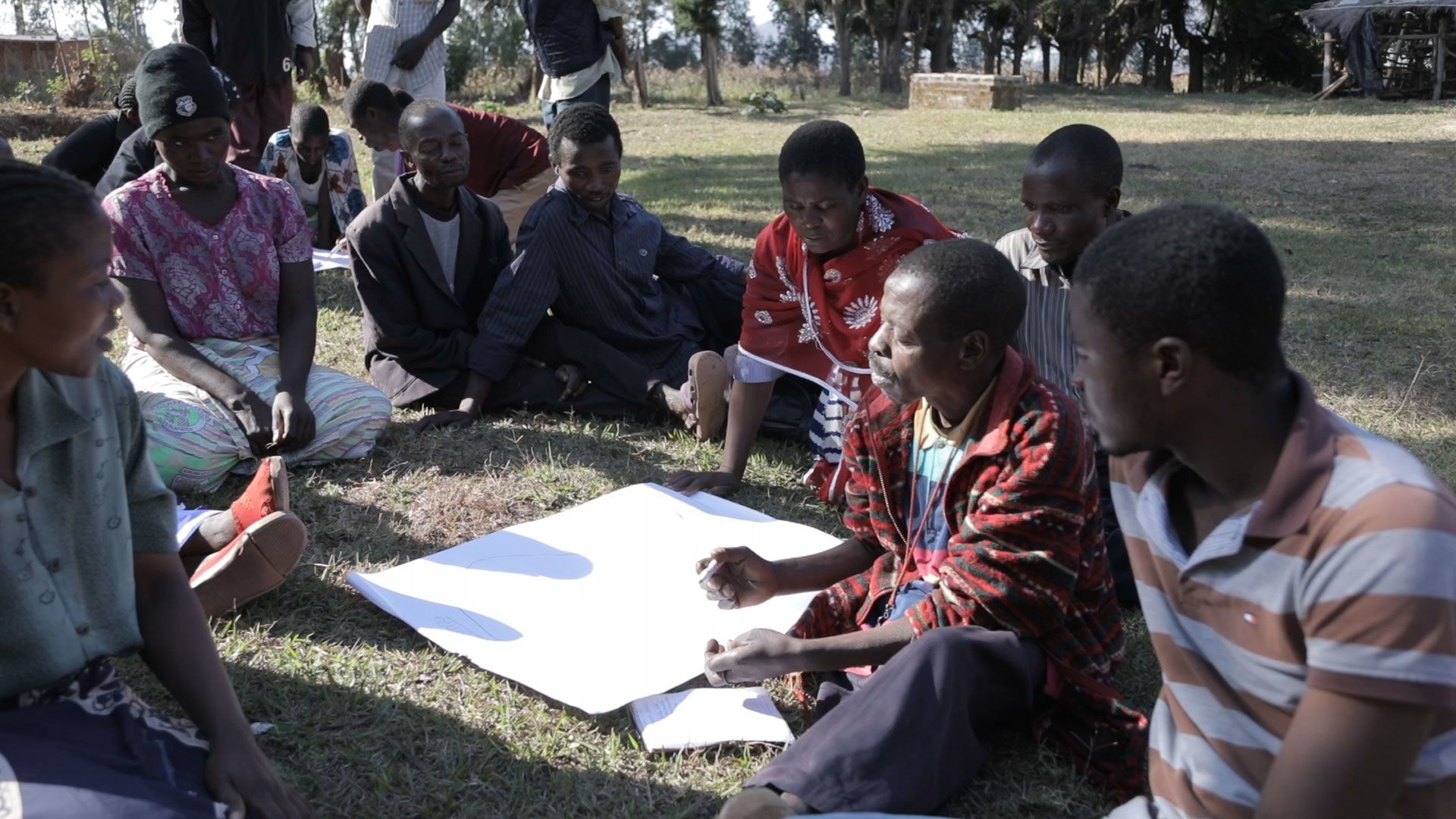
Capacity building
The project provides funding to work with affected communities in flood disaster prone areas to undertake awareness raising and risk reduction. The capacity of local communities, district councils, and national agencies to respond to emergencies is being strengthened through training and improved emergency services.
Climate change remains a global challenge. It requires measures by all countries and their communities to reduce greenhouse gas emissions and find ways to adapt to its onset. Climate effects, however, will continue to be local. In the case of this project, forewarned is forearmed. Improved information about climate change and enhanced ways to disseminate that information will save an uncountable number of future lives and livelihoods in Malawi.
There were different tools that we were using when training these farmers like the resource allocation map also called the household map, how to make a budget, how to tell when the climate is changing, as well as the weather forecast on how the weather is going to be like for the planting season.
Martha Pumbwa - Agriculture Extension Development Coordinator for Bembeke Agricultural Extension Planning Area (EPA)
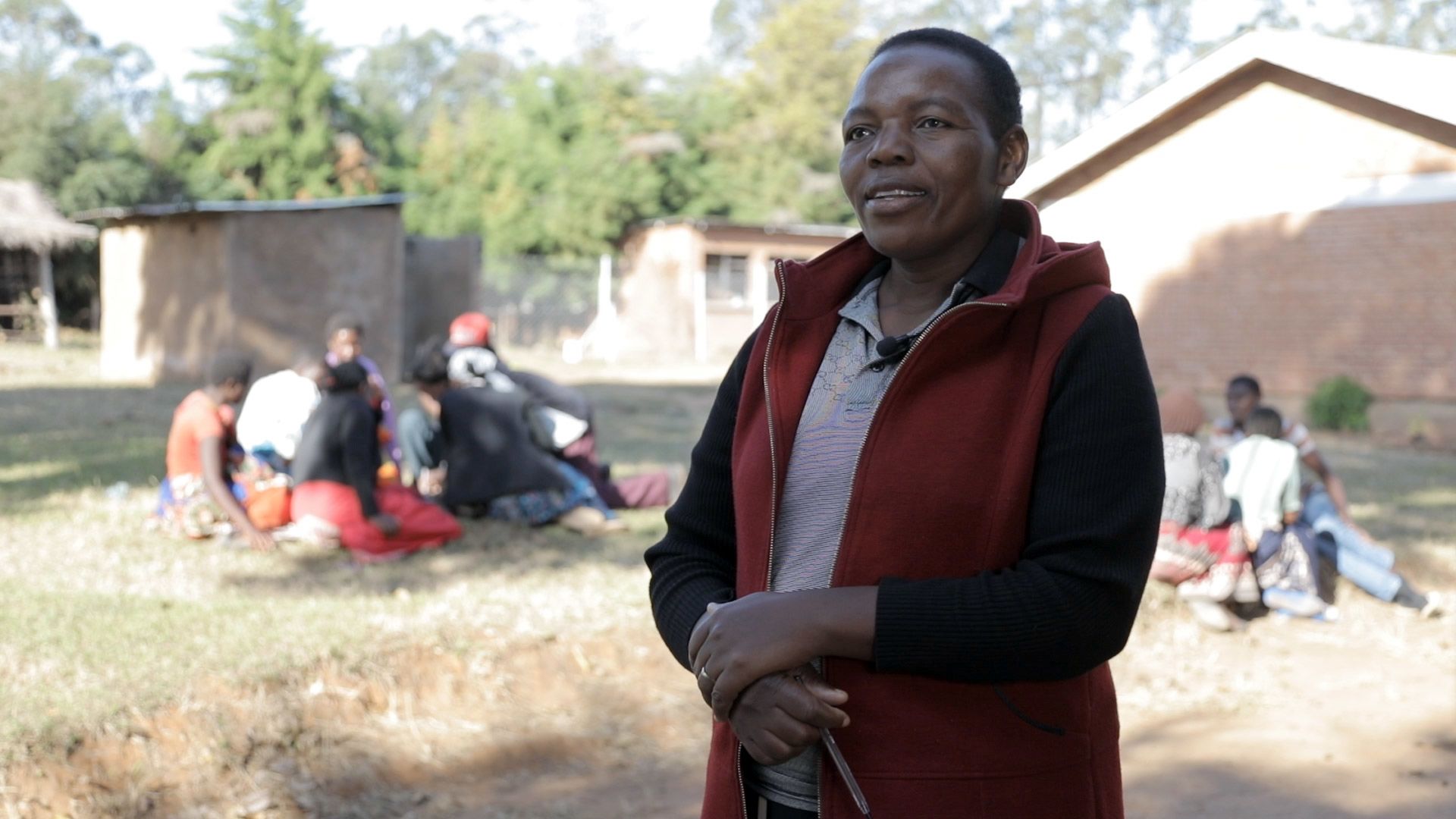
”There were different tools that we were using when training these farmers like the resource allocation map also called the household map, how to make a budget, how to tell when the climate is changing, as well as the weather forecast on how the weather is going to be like for the planting season.”
More stories














